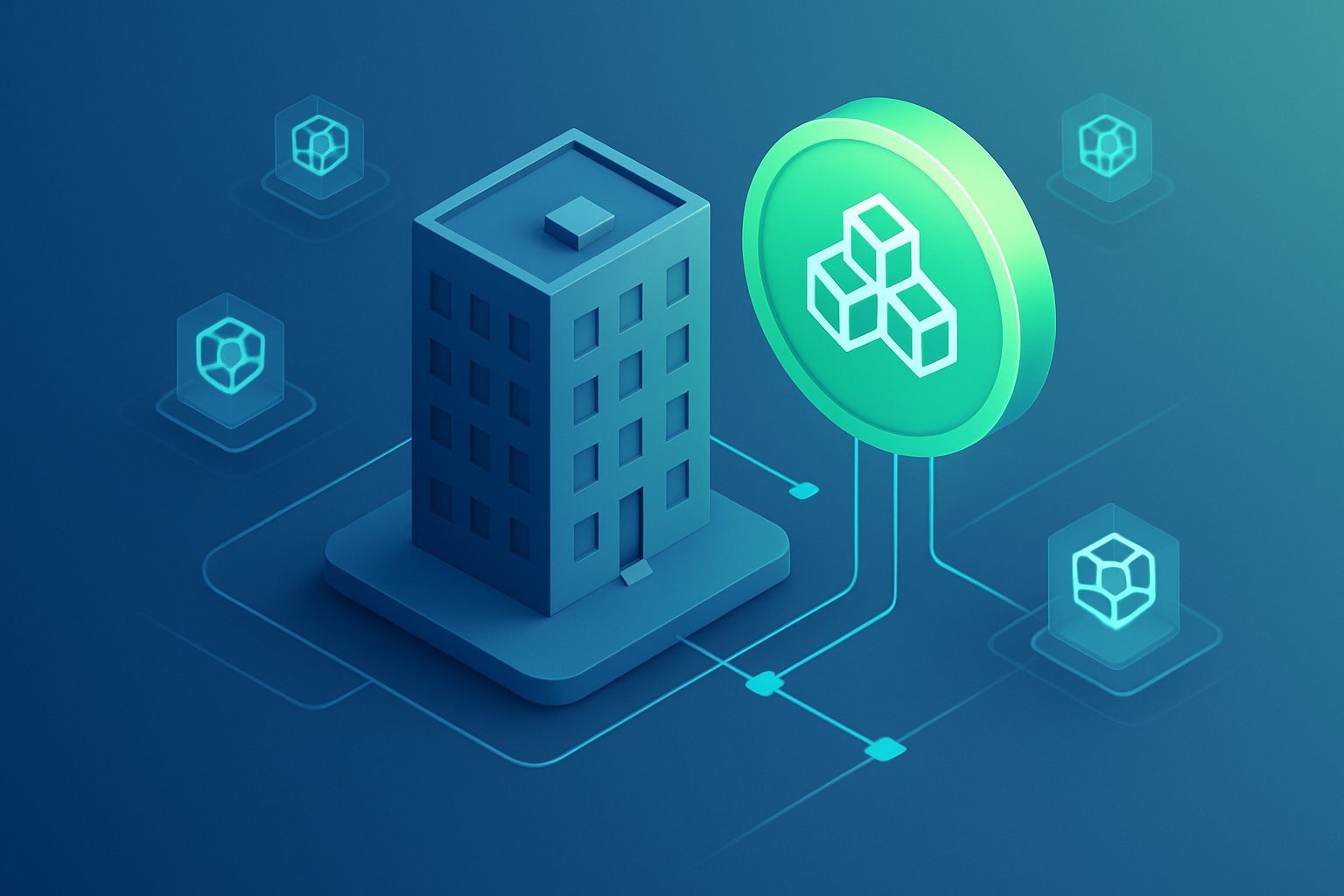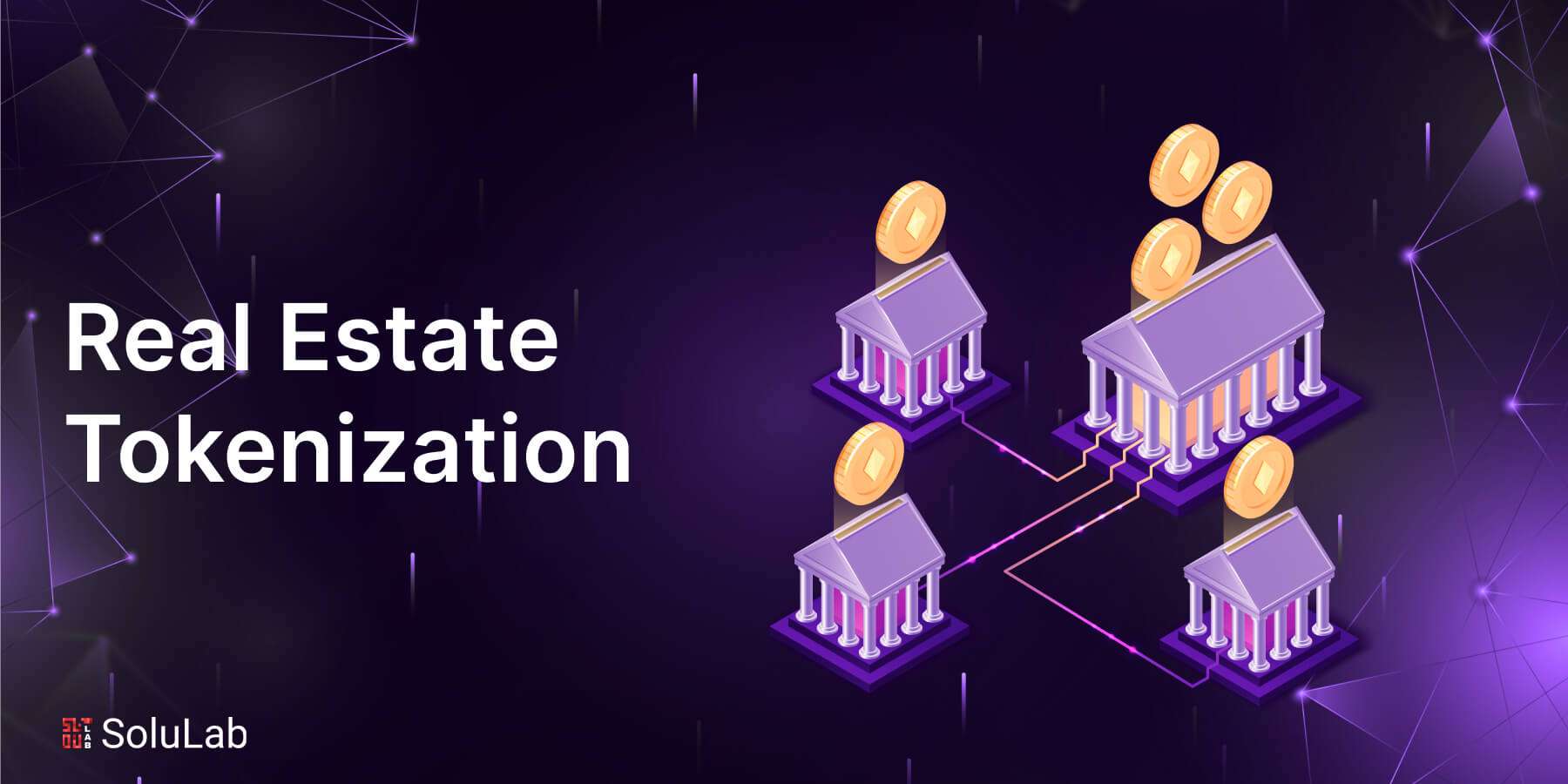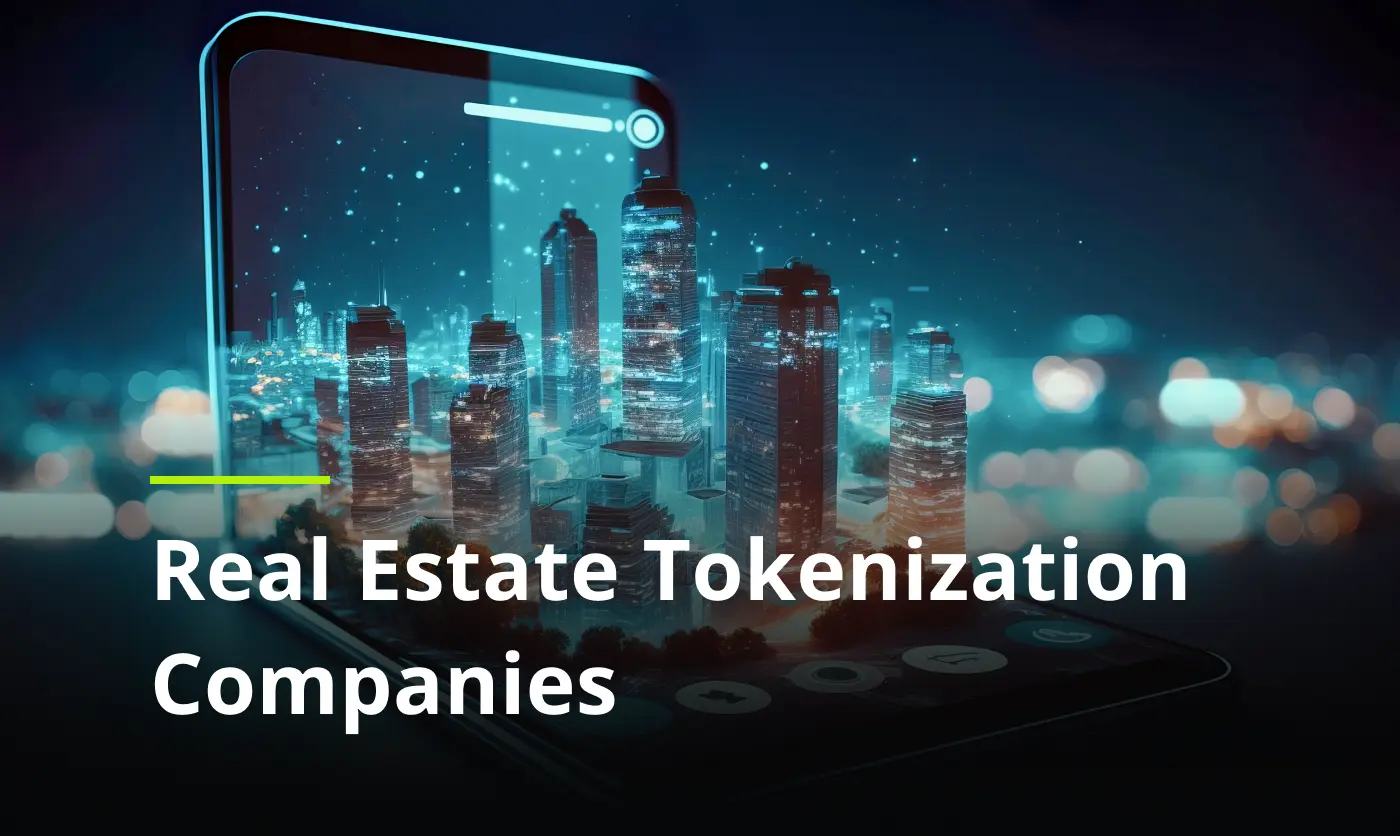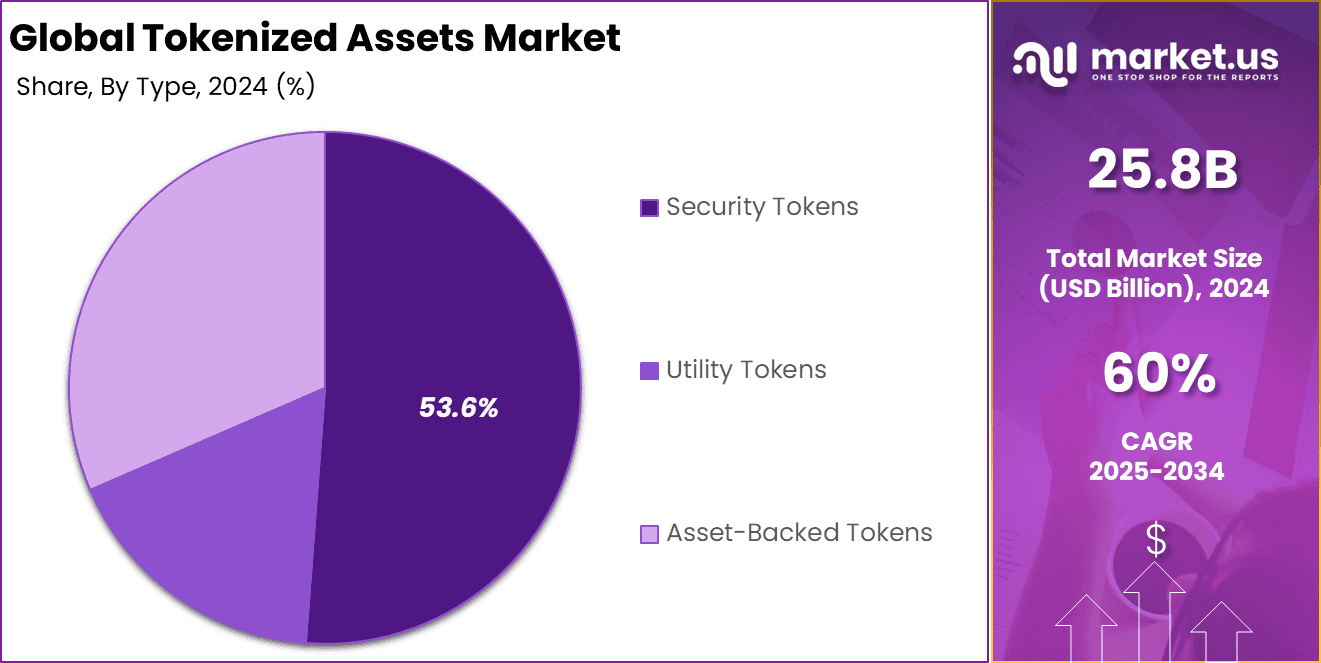How Blockchain Tokenization is Revolutionizing Real Estate Liquidity

Real estate has long been known for its stability and potential for steady returns, but one challenge has consistently limited its appeal: liquidity. Traditionally, selling a property or even a share in a real estate investment could take weeks or months, with high transaction costs and significant administrative friction. Today, blockchain technology is fundamentally changing this dynamic through real estate tokenization liquidity, making property assets as tradable as stocks or cryptocurrencies.

From Illiquid Asset to On-Chain Opportunity
Tokenization is the process of representing ownership of real-world assets – such as commercial buildings, residential properties, or land – as digital tokens on a blockchain. Each token represents a fractional share of the underlying asset. This approach enables investors to buy and sell small portions of high-value properties with ease, opening the door to fractional property ownership blockchain models that were previously out of reach for most individuals.
The impact is profound: instead of tying up capital in illiquid holdings, investors can now access secondary markets where these tokens are traded 24/7. This means faster transactions, lower entry barriers, and a much broader investor base. Institutional players are taking note; according to Deloitte Insights, asset tokenization allows them to create custom portfolios tailored to specific investment theses.
The Mechanics Behind Real Estate Tokenization
The mechanics are straightforward but powerful. Property owners work with specialized platforms to digitize ownership rights into blockchain-based tokens. These tokens are then offered to investors who can purchase any number they choose – sometimes for as little as a few hundred dollars per token – rather than buying an entire property outright.
Smart contracts, self-executing programs on the blockchain, automate critical processes like dividend payouts from rental income and compliance checks. This reduces administrative overhead and virtually eliminates manual errors. For investors, this translates into greater transparency: all transactions are recorded on-chain and can be verified by anyone at any time.
Key Benefits of Real Estate Tokenization
-

Fractional Ownership Lowers Barriers: Tokenization enables fractional ownership, allowing investors to purchase small portions of real estate, making property investment accessible to a wider audience.
-

Enhanced Liquidity Through Secondary Markets: Tokenized real estate can be traded on regulated secondary marketplaces such as tZERO and OpenFinance, enabling faster and more flexible transactions compared to traditional real estate.
-

Automated Processes with Smart Contracts: Smart contracts automate key processes like dividend payouts and compliance, reducing administrative costs and minimizing human error.
-

Increased Transparency and Security: Blockchain technology provides a tamper-resistant ledger, ensuring transparent and secure recording of property ownership and transaction history.
-

Customizable Investment Portfolios: Institutional investors can build tailored portfolios by selecting specific property tokens that match their investment strategies, as highlighted by Deloitte.
A Paradigm Shift in Real Estate Liquidity Solutions
The shift from static brick-and-mortar investments to dynamic digital assets is not just about convenience; it’s about unlocking value that was previously trapped in physical form. Tokenized real estate benefits go beyond liquidity:
- Diversification: Investors can spread risk across multiple properties or geographies without massive capital commitments.
- Global Reach: Blockchain platforms allow participation from around the world, breaking down geographic barriers.
- Security and Transparency: Blockchain’s immutable ledger ensures every transaction is secure and auditable.
- Lower Costs: Automation streamlines processes and slashes fees compared to traditional real estate transactions.
This new model addresses many pain points faced by both individual investors and large institutions alike. As highlighted by ScienceDirect. com and Infosys research, asset tokenization is revolutionizing not just liquidity but also efficiency and market accessibility.
However, the journey toward a fully tokenized real estate market is not without its challenges. Regulatory frameworks are still catching up to the rapid pace of innovation, and there is a critical need for robust security protocols to protect against vulnerabilities in smart contracts. Investors must conduct due diligence on both the underlying asset and the platform facilitating tokenization, as not all offerings are created equal. Despite these hurdles, the momentum is undeniable – and the benefits are already being realized by early adopters.
Real-World Adoption: Early Successes and Lessons
Recent case studies provide tangible proof of how blockchain real estate investment is reshaping traditional paradigms. For example, commercial buildings in major cities have been successfully tokenized and sold to hundreds of investors across multiple jurisdictions. These projects demonstrate that tokenization can create new liquidity pools even for high-value assets that once required significant capital and lengthy negotiations to transact.
Secondary trading volumes on regulated platforms continue to grow, signaling increasing acceptance among both retail and institutional investors. According to industry data, transaction speeds have improved dramatically compared to conventional property deals, with settlement times reduced from weeks to mere minutes in some cases.
What’s Next for Tokenized Real Estate?
The future of real estate liquidity solutions lies at the intersection of technology, regulation, and investor education. As more jurisdictions develop clear guidance on digital asset securities and as platforms mature their compliance standards, adoption rates are expected to accelerate further. The potential for programmable assets – such as tokens that automatically distribute rental income or adjust rights based on governance votes – opens up entirely new avenues for innovation in property management and investment structures.
For forward-thinking investors, this means unprecedented flexibility. It’s now possible to assemble a diversified portfolio of global properties with just a few clicks – no international travel or complex paperwork required. Tokenized real estate benefits also extend to property owners seeking liquidity without selling entire assets outright; partial sales via tokens can unlock capital while retaining long-term upside potential.
Leading Cities Embracing Tokenized Real Estate
-

New York City, USA – As a global financial hub, New York has seen several high-profile tokenized real estate projects, including luxury condos and commercial properties. Regulatory clarity and strong institutional interest have made it a pioneer in real estate tokenization.
-

London, United Kingdom – London’s robust property market and progressive regulatory environment have attracted platforms like Brickblock and Smartlands, which facilitate tokenized property investments across the city.
-

Dubai, United Arab Emirates – Dubai is at the forefront of blockchain adoption in real estate, with government-backed initiatives such as the Dubai Land Department’s blockchain platform and tokenized property launches by firms like Eqarat.
-

Berlin, Germany – Berlin has emerged as a hotspot for tokenized real estate, with platforms like Brickblock and Fundament Group offering fractional ownership of both residential and commercial properties.
-

Singapore – Known for its tech-forward approach and supportive regulatory framework, Singapore hosts several tokenized real estate projects, including offerings on platforms like Propine and RealT.
Navigating Risks and Maximizing Opportunities
While enthusiasm is high, prudent investors should remain mindful of risks unique to this emerging sector. Volatility in secondary markets can impact short-term valuations; regulatory shifts may influence market dynamics; platform security remains paramount as smart contract exploits continue to make headlines in broader crypto markets.
Staying informed about evolving best practices – from smart contract audits to compliance checks – will be essential for anyone looking to maximize returns while minimizing downside risk. Community engagement is another key factor; many platforms offer forums or governance features where investors can participate in decision-making processes related to their holdings.
Do you feel more confident investing in tokenized real estate or traditional property ownership?
With blockchain tokenization making real estate more liquid and accessible through fractional ownership and faster transactions, investor preferences may be shifting. Which investment approach inspires more confidence for you?
The rise of tokenized real estate marks a fundamental shift toward greater accessibility, efficiency, and transparency in property investment. By embracing this technology thoughtfully and staying attuned to ongoing developments, both seasoned professionals and newcomers alike can tap into new sources of liquidity while helping shape the next era of global real estate markets.







